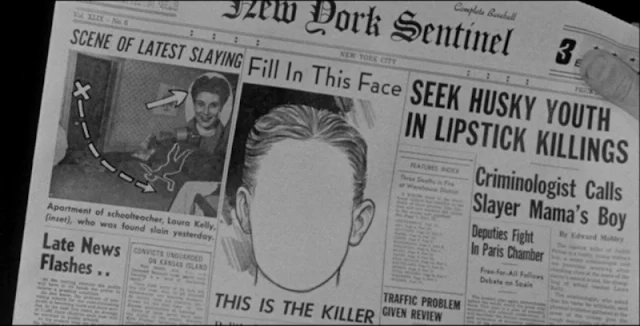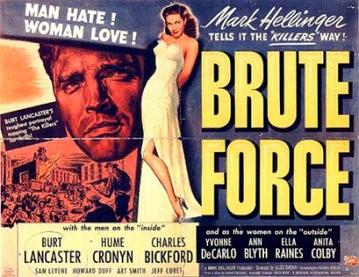A blog formerly known as Bookishness / By Charles Matthews
"Dazzled by so many and such marvelous inventions, the people of Macondo ... became indignant over the living images that the prosperous merchant Bruno Crespi projected in the theater with the lion-head ticket windows, for a character who had died and was buried in one film and for whose misfortune tears had been shed would reappear alive and transformed into an Arab in the next one. The audience, who had paid two cents apiece to share the difficulties of the actors, would not tolerate that outlandish fraud and they broke up the seats. The mayor, at the urging of Bruno Crespi, explained in a proclamation that the cinema was a machine of illusions that did not merit the emotional outbursts of the audience. With that discouraging explanation many ... decided not to return to the movies, considering that they already had too many troubles of their own to weep over the acted-out misfortunes of imaginary beings."--Gabriel García Márquez, One Hundred Years of Solitude
Search This Blog
Showing posts with label Howard Duff. Show all posts
Showing posts with label Howard Duff. Show all posts
Friday, February 21, 2020
The Naked City (Jules Dassin, 1948)
Cast: Barry Fitzgerald, Howard Duff, Don Taylor, Dorothy Hart, Frank Conroy, Ted de Corsia, House Jameson, Anne Sargent, Adelaide Klein, Grover Burgess, Tom Pedi, Enid Markey, voice of Mark Hellinger. Screenplay: Albert Maltz, Malvin Wald. Cinematography: William H. Daniels. Art direction: John DeCuir. Film editing: Paul Weatherwax. Music: Miklós Rózsa, Frank Skinner.
This hugely influential police procedural won two Oscars, for William H. Daniels's cinematography and Paul Weatherwax's film editing. Which is as it should be: What excitement and interest the film has today, after years of derivative movies and TV shows, is in the documentation of New York City streets and landmarks in the years just after World War II and in the brilliantly paced chase scene that comes at the climax, when the murderer scales the Williamsburg Bridge to evade the cops pursuing him. The script now feels clichéd, even if some of the clichés were new, and the dialogue sometimes banal and over-expository. Nor does producer Mark Hellinger's occasionally pretentious voice-over narration sound right to the ear. Barry Fitzgerald overindulges his leprechaun schtick as Lt. Muldoon and Don Taylor is a bit too determinedly callow as Halloran. On the other hand, the supporting cast is convincingly real. It's fun to watch today for some faces that became familiar later, many of them performing on Broadway at the time the film was made and rounded up for bit parts. Look for Paul Ford, Kathleen Freeman, James Gregory, John Marley, Arthur O'Connell, David Opatoshu, Nehemiah Persoff, Molly Picon, and John Randolph among them. The director, Jules Dassin, and the screenwriters, Albert Maltz and Malvin Wald, were among those who fell afoul of the witch hunters of the blacklist in the 1950s.
Tuesday, March 12, 2019
While the City Sleeps (Fritz Lang, 1956)
While the City Sleeps (Fritz Lang, 1956)
Cast: Dana Andrews, Rhonda Fleming, George Sanders, Howard Duff, Thomas Mitchell, Vincent Price, Sally Forrest, John Drew Barrymore, James Craig, Ida Lupino. Cinematography: Ernest Laszlo. Art direction: Carroll Clark. Film editing: Gene Fowler Jr. Music: Herschel Burke Gilbert.
Friday, February 24, 2017
Brute Force (Jules Dassin, 1947)
Surprisingly violent for a film made under the Production Code, Brute Force gives us a prison-break story in which we root for the prisoners, but it still comes down heavily on the crime-does-not-pay moral: "Nobody escapes," says one of the movie's few survivors to the camera at the end. "Nobody ever really escapes." Under Jules Dassin's direction, Richard Brooks's screenplay tries to have it both ways: The cons are heroic and the guards are villainous, but law and order must prevail. The easy way out of this is to kill off both the heroes and the villains. The chief hero is Joe Collins, played by Burt Lancaster with his usual handsomely bullish intensity. The chief villain is the head guard, Capt. Munsey, played against type by Hume Cronyn. The imbalance between the two is exhibited early in the film when Munsey tries to dress down Collins but is confronted with a massive Lancastrian cold shoulder. But Munsey has guile on his side, along with ambition to supplant the weakling Warden Barnes (Roman Bohnen), who is under political pressure to toughen up enforcement in the prison, from which reports of unrest among the inmates have been emerging. Dassin tells us all we need to know about Munsey when we see him in his office, which has little homoerotic touches in its decor like a picture of a male torso, along with a large Hitlerian photograph of Munsey himself. While beating a prisoner with a rubber hose to elicit information about a planned prison break, Munsey turns up the volume on the Wagner he is playing on the phonograph. Not that the cons are any less gentle: To punish a prisoner who collaborated with the guards, they force him into the machine that stamps out license plates, and during the climactic prison break, a stoolie is strapped to the front of a mine car and shoved out into the gunfire from the guards. The film never really lightens things up, though there are some flashback scenes involving tender moments between some of the prisoners and what the credits bill as "the women on the 'outside,'" including Ann Blyth as Collins's cancer-stricken wife. There are some good performances from Charles Bickford as the con who edits the prison newspaper and joins the escape plan after he learns that his expected parole has been put on indefinite hold, and Art Smith as the prison's cynical, alcoholic doctor, along with solid support from Sam Levene, Jeff Corey, Howard Duff, and a horde of well-chosen ugly-mug extras.
Subscribe to:
Comments (Atom)











